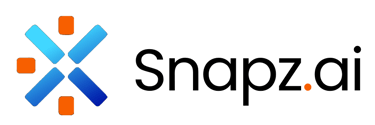Why SMBs Are Leading the AI Charge
A review of Microsoft's recent Work Trend Index.
4/30/20253 min read


The Rise of the Frontier Firm—and Why SMBs Are Leading the AI Charge
As artificial intelligence moves from experimental labs into everyday operations, 2025 marks the birth of the Frontier Firm—organizations rewired around on-demand AI, fluid human-agent teams, and empowered “agent bosses.” While this shift will reshape every industry, small and medium-sized businesses (SMBs) are uniquely poised to capitalize. With lean teams, fewer silos, and a bias for action, SMBs can adopt AI faster, scale more nimbly, and unlock capabilities once reserved for much larger companies.
Intelligence on Tap: Democratizing Expertise
AI is no longer confined to specialized experts—it’s becoming an essential durable good: abundant, affordable, and instantly available. For SMBs facing economic uncertainty and resource constraints, “intelligence on tap” offers a powerful new lever for growth.
Bridging the Capacity Gap: Half of SMB leaders (53%) say productivity must increase, yet both employees and leaders report lacking time or energy to meet demands. With employees interrupted every two minutes by meetings, emails, or pings, on-demand AI can take on planning, analysis, and routine tasks—letting lean teams focus on high-value work.
Scaling Like the Big Guys: Nearly half of SMB leaders (45%) plan to expand capacity with digital labor in the next 12–18 months—second only to upskilling existing staff (46%). With AI agents handling research, drafting, or data crunching, a five-person startup can operate with the sophistication of a 50-person firm. For example, Industrialized Construction Group uses AI for everything from simulations to market research—boosting margins by 20%.
From Org Charts to Work Charts: Fluid, Outcome-Driven Teams
Traditional hierarchies give way to Work Charts—flexible team assemblies that blend human expertise with AI agents.
SMB Agility: Already, 24% of SMBs use agents today, and 79% plan to implement them within the next 12–18 months. With fewer layers and faster decision-making, small businesses can spin up task-specific teams—like a Hollywood production crew—then disband them once objectives are met.
Right-Sizing the Human-Agent Mix: Success hinges on finding the correct human-agent ratio for each task. When should an AI draft a marketing plan? When does a human touch guide customer conversations? As roles evolve, SMBs must experiment to determine where digital labor delivers the best ROI, and where human judgment remains essential.
Every Employee as an Agent Boss
In the Frontier Firm, managing AI becomes as important as using it. The agent boss mindset empowers every worker to treat AI as a teammate—delegating, training, and optimizing agents to amplify their impact.
New Roles and Skills: Within five years, SMB leaders expect to be redesigning processes with AI (30%), building multi-agent systems for complex tasks (34%), training agents (33%), and managing them (26%). Already, 24% are considering hiring AI Workforce Managers, and 29% plan to bring on AI Agent Specialists to architect and optimize these hybrid teams.
Career Acceleration: Rather than displacing staff, AI frees employees to tackle more strategic, creative work earlier in their careers. By delegating routine tasks to agents, workers gain leverage and focus on outcomes that truly matter—fueling innovation and job satisfaction.
Agility: The SMB Superpower
Just as early internet adopters rewrote the rules of business, today’s nimble startups and smaller firms are carving out outsized growth:
Talent Shifts: On LinkedIn, leading AI-native startups have grown headcount by 20.6% year-over-year—nearly twice the pace of Big Tech (10.6%). In a talent market strained by layoffs, SMBs are winning top performers by offering fast-moving, AI-driven cultures.
Built for Change: Without entrenched processes or legacy systems, small businesses can pilot new AI workflows, experiment with agent-driven projects, and iterate rapidly—turning agility into a competitive moat.
Equipping the Frontier: A New Copilot for Every Team
To support this transformation, Microsoft’s Copilot for Microsoft 365 Wave 2 delivers a unified interface for human-agent collaboration—right inside the tools SMBs already use:
Agent Store & Reasoning Bots bring deep-dive research and analysis into apps like Word, Excel, and Teams.
GPT-4o Image Generation democratizes design, letting anyone create on-brand visuals and social assets in seconds.
Copilot Notebooks ground AI insights in your own files, recordings, and chat history—updating analyses in real time.
Enterprise Copilot Search delivers context-aware answers from across Slack, SharePoint, Google Drive, and more.
Governance Controls let IT pros and business leaders manage which agents are available to which teams—balancing innovation with security.
Getting Started: Action Steps for SMB Leaders
Map Your Capacity Gap: Identify your biggest bottlenecks—be it reporting, research, customer follow-up, or creative output—and pilot AI agents to take on those tasks.
Redesign Teams as Work Charts: Form cross-functional squads around key outcomes, blending human skills with AI agents to accelerate delivery.
Build Agent Boss Skills: Offer workshops and champions programs so every employee learns to train, evaluate, and collaborate with AI.
Measure and Iterate: Track metrics like cycle time, quality, and employee satisfaction to refine your human-agent ratios and processes.
Invest in Governance: Use tools like Copilot Control System to ensure AI use aligns with your security, compliance, and ethics standards.
By leaning into AI now, SMBs will not just keep pace—they’ll define the next era of work. The Frontier Firm isn’t a distant future; it’s being born today, and small and medium-sized businesses have the agility, mindset, and scale to lead the way.
